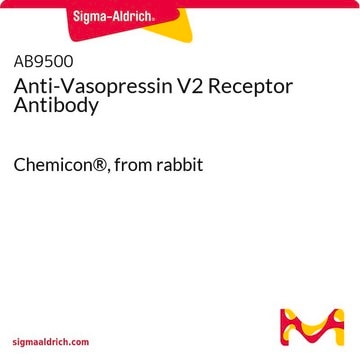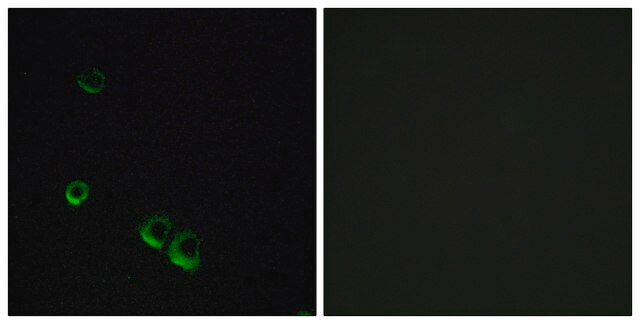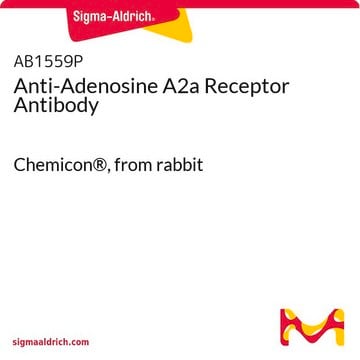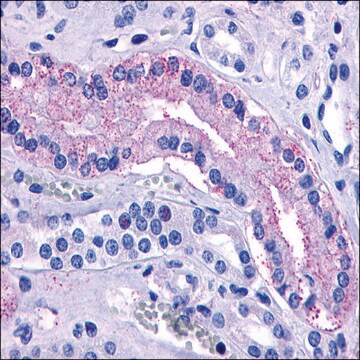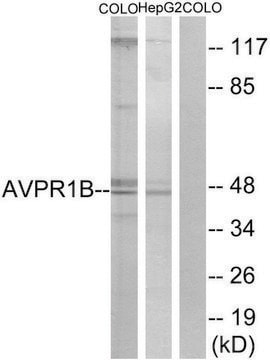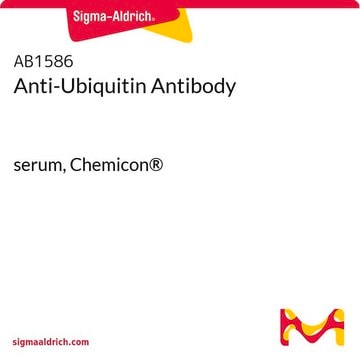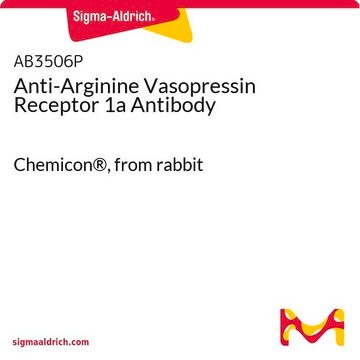AB1797P
Anti-Arginine Vasopressin Receptor V2 Antibody
Chemicon®, from rabbit
Synonim(y):
AVPR-V2
About This Item
Polecane produkty
pochodzenie biologiczne
rabbit
Poziom jakości
forma przeciwciała
affinity purified immunoglobulin
rodzaj przeciwciała
primary antibodies
klon
polyclonal
oczyszczone przez
affinity chromatography
reaktywność gatunkowa
rat
producent / nazwa handlowa
Chemicon®
metody
ELISA: suitable
immunohistochemistry: suitable
western blot: suitable
numer dostępu NCBI
numer dostępu UniProt
Warunki transportu
dry ice
docelowa modyfikacja potranslacyjna
unmodified
informacje o genach
human ... AVPR2(554)
Specyficzność
Immunogen
Zastosowanie
Neuroscience
CNS Control of Metabolism
Hormones & Receptors
Immunohistochemistry: 2-10 μg/mL on paraformaldehyde fixed tissue. AVP-V2 has been localized in terminal IMCD and other areas of rat kidney (Nonoguchi et al. 1995).
ELISA: 0.5-1.0 μg/mL using 1 μg/mL of control peptide to coat plate.
Optimal working dilutions must be determined by the end user.
Powiązanie
Postać fizyczna
Przechowywanie i stabilność
Informacje prawne
Oświadczenie o zrzeczeniu się odpowiedzialności
Not finding the right product?
Try our Narzędzie selektora produktów.
Kod klasy składowania
12 - Non Combustible Liquids
Klasa zagrożenia wodnego (WGK)
WGK 2
Temperatura zapłonu (°F)
Not applicable
Temperatura zapłonu (°C)
Not applicable
Certyfikaty analizy (CoA)
Poszukaj Certyfikaty analizy (CoA), wpisując numer partii/serii produktów. Numery serii i partii można znaleźć na etykiecie produktu po słowach „seria” lub „partia”.
Masz już ten produkt?
Dokumenty związane z niedawno zakupionymi produktami zostały zamieszczone w Bibliotece dokumentów.
Nasz zespół naukowców ma doświadczenie we wszystkich obszarach badań, w tym w naukach przyrodniczych, materiałoznawstwie, syntezie chemicznej, chromatografii, analityce i wielu innych dziedzinach.
Skontaktuj się z zespołem ds. pomocy technicznej